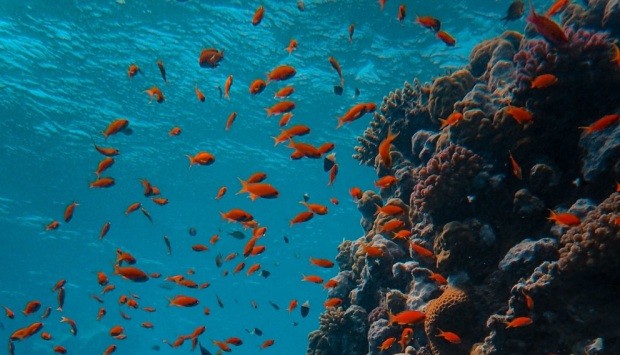Play all audios:
A laboratory analysis of two tropical coral species reveals the mechanism that they use to offset the combined effects of heat stress and ocean acidification1 effects known to disrupt coral
skeletal growth. The photosynthetic algae living inside the corals supply energy to maintain the processes that contribute to their skeletal growth, a team of researchers has found. This
knowledge will help them understand how the corals cope with the increased carbon dioxide levels that make the oceans warmer and more acidic. Heat stress bleaches corals. However, no
previous studies had examined how temperature and ocean acidification affect the corals, particularly their skeletal growth. To explore this, the scientists, including an Indian researcher
from the Indian Institute of Science in Bengaluru, India, analysed how the two tropical coral species (_Pocillopora damicornis_ and _Stylophora pistillata_) responded to a range of carbon
dioxide partial pressures at 28°C and 31°C in laboratory experiments. They also measured and compared the pH of seawater and the fluid that helps build their skeleton. Both coral species
exhibited a decrease in skeletal growth with increasing temperature under each of the three carbon dioxide partial pressures tested. The corals could cope with ocean acidification conditions
at 28°C by elevating the pH of the fluid that contributes to their skeletal growth. However, they lose this capacity and their skeletal growth drops at 31°C. The findings may help predict
how future changes in the climate will affect the coral reefs, the researchers say. REFERENCES 1. Guillermic, M. et al. Thermal stress reduces pocilloporid coral resilience to ocean
acidification by impairing control over calcifying fluid chemistry. Sci. Adv.7: eaba9958 (2021)

